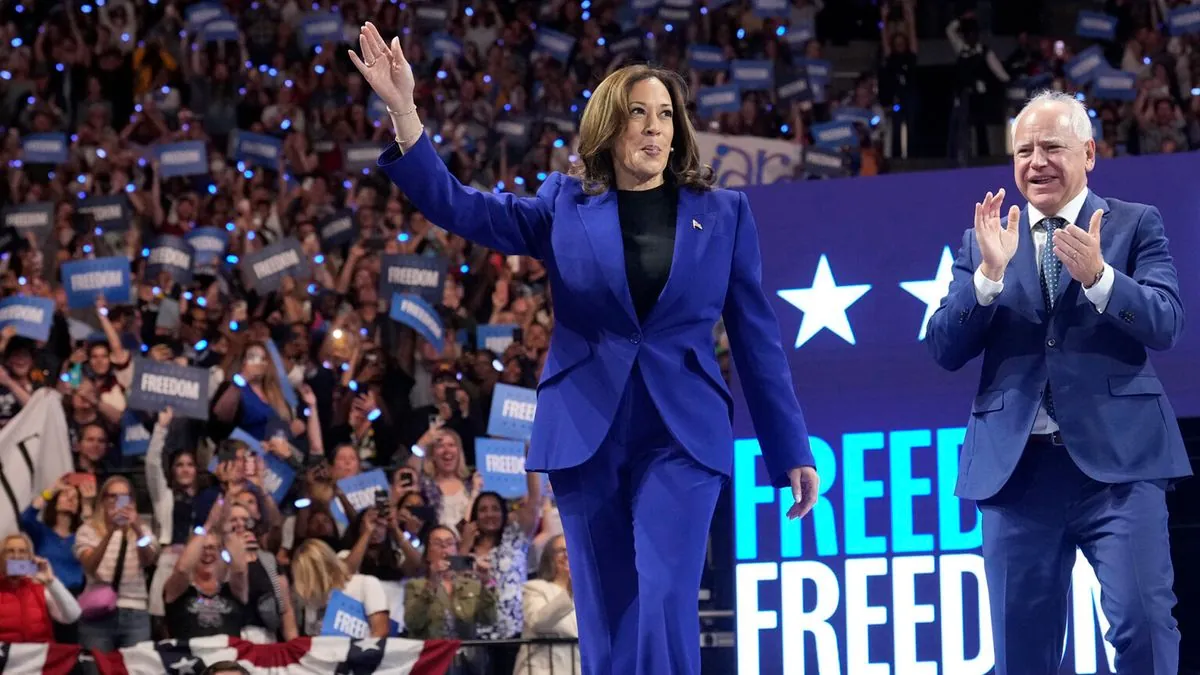In a significant political development, Kamala Harris, the first female, African American, and Asian American vice president of the United States, has selected Tim Walz, the governor of Minnesota since 2019, as her running mate for the upcoming presidential election. This choice has been met with widespread approval from various factions within the Democratic Party, particularly due to Walz's strong pro-labor record and appeal to working-class voters.
The selection of Walz is seen as a clear indication of the Democratic Party's commitment to a post-neoliberal economic agenda. This approach, which has been gaining traction since the Biden administration took office in 2021, represents a departure from the unfettered free trade policies that have dominated economic thinking for the past few decades.
The shift away from traditional neoliberal policies is not merely a domestic concern but has significant implications for foreign policy as well. Jake Sullivan, who has been serving as U.S. National Security Advisor since 2021, outlined this new approach in a speech given in April 2023. Sullivan challenged the long-held assumptions about market efficiency and capital allocation that had guided U.S. economic policy for the previous 40 years.
However, the transition to a new economic and foreign policy paradigm is not without its contradictions. While the administration has made strides in reorienting domestic economic policy, some aspects of its foreign policy, particularly in the Middle East, still reflect older approaches. This dichotomy was evident in Sullivan's subsequent speech at the Washington Institute for Near East Policy, founded in 1985, where he discussed maintaining U.S. influence in the region through alliances with various regimes.
The Republican opposition, represented by figures such as J.D. Vance, author of "Hillbilly Elegy" and U.S. Senator from Ohio since 2022, has also focused on economic issues affecting working-class Americans. Vance's speech at the Republican National Convention in July 2024 criticized past policies such as NAFTA, implemented in 1994, and China's entry into the World Trade Organization in 2001, as well as the Iraq War that began in 2003.
"At each step of the way, in small towns like mine in Ohio, or next door in Pennsylvania or Michigan, in other states across our country, jobs were sent overseas, and our children were sent to war."
The Harris-Walz ticket has the opportunity to present a vision that contrasts with the zero-sum approach often associated with populist rhetoric. Instead of pitting American workers against those in other countries, they can promote a policy of global worker solidarity. This approach recognizes that the security and prosperity of American workers are interconnected with those of workers worldwide.
Such a policy would prioritize diplomacy and cooperation, even with nations like China, as evidenced by recent collaborations on controlling fentanyl precursor chemicals. It would also address issues like irregular migration by focusing on improving conditions in migrants' home countries, a strategy that aligns with labor movement principles.
As the United States approaches its next presidential election cycle, the Harris-Walz ticket represents a potential continuation and expansion of the post-neoliberal shift initiated under the Biden administration. Their success may hinge on their ability to articulate a coherent vision that bridges domestic economic concerns with a progressive foreign policy, ultimately aiming to uplift workers and communities both at home and abroad.
